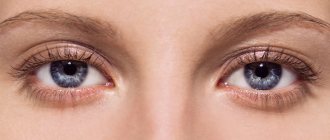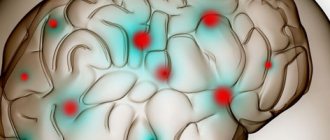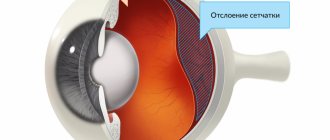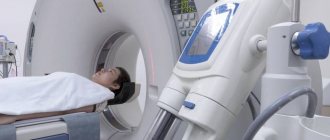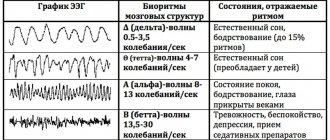Some people cannot imagine the morning without a cup of coffee. This drink energizes, helps to cheer up and improves performance. At the same time, almost no one thinks about how coffee affects the blood vessels of the brain and other vital organs. If used frequently, it can cause serious harm, especially in cases of heart disease.
The mechanism of action of caffeine on the vascular system
The caffeine contained in coffee affects the blood vessels of the brain in different ways. As a rule, it promotes their expansion, but in some systems, for example, digestion and the central nervous system, capillaries contract under its influence.
This is explained by the stimulating effect of the substance: in order for the cardiovascular system and nerve centers to be activated, blood flow in most internal organs is reduced. Reducing the permeability of capillary walls promotes the excitation of neurons in the brain and because of this, drowsiness disappears.
Drinking large amounts of the drink contributes to the accumulation of caffeine in the body. It weakens the effect of adenosine, a substance that inhibits the transmission of nerve impulses. As a result, the brain is activated and ceases to feel the need for rest.
Caffeine stimulates the production of hormones, including adrenaline. Its action is familiar to everyone:
- The pulse quickens;
- Respiration rate increases;
- Pupils dilate;
- I feel a surge of strength.
This hormone stimulates the functioning of the cardiovascular system: the heart begins to contract more often, small vessels narrow, and blood pressure rises. Therefore, coffee and other caffeine-containing drinks are prohibited for myocardial diseases.
The influence and effects of coffee on the human body
The effect that a product has on health is the sum of the individual effects of the components of its composition. To learn about the beneficial and harmful characteristics of coffee, you should study its chemical composition.
Grain components: BJU, essential oils, caffeine, trigonelline, water, oxalic, chlorogenic, quinic and citric acids, vitamins of various groups, tanning effect substances, iron, calcium, phosphorus, nitrogen, potassium and varieties of mineral salts.
During heat treatment, the composition loses some elements. New substances are also formed - vitamins PP. The composition of the drink varies depending on the selected type of grain and its roasting technology.
To get more information about how coffee affects the human body, you should take a closer look at the individual components of its composition.
- Caffeine. It has an effect on the central nervous system, stimulating neurons in the networks, increases the level of human performance, gives a charge of vigor, reduces the level of physical fatigue and reduces drowsiness and lethargy.
- Trigonelline. During heat treatment, this substance takes part in the creation of kafeol, which gives everyone the well-known taste and aroma. Also, during frying, the substance stimulates the release of nicotinic acid in the composition. It, in turn, accelerates the process of microcirculation and reduces the amount of cholesterol in the vessels.
- Chlorogenic acid. Grains have the highest concentration of this substance compared to other plants. This acid helps accelerate nitrogen metabolism and stimulates the gastrointestinal tract. It is this substance that gives the astringent taste.
- Vitamin R. Helps strengthen the walls of blood vessels and capillaries. One cup contains one fifth of the daily intake of this substance.
- Essential oils. Thanks to such compositional elements, the drink has an antiseptic effect and also has an attractive aroma.
- Tannins. They help simplify the digestion process and have a bitter taste.
The effect of caffeine on blood vessels
The effect of coffee on the blood vessels of the brain is controversial. On the one hand, it activates its work, increases its ability to work, and stimulates brain activity. On the other hand, a strong spasm of small vessels can provoke hemorrhage.
This is explained by the fact that, under the influence of negative factors, the tissue walls wear out over time and become fragile.
Stimulation of nerve centers affects the functioning of the brain:
- The need for oxygen is reduced;
- Metabolic processes take place at an accelerated pace;
- The work of the central nervous system departments improves;
- Drowsiness disappears.
Caffeine significantly affects the functioning of the subcortical structures of the brain, which affects the functioning of the entire body. Under its action, the autonomic nerve centers of the brain stem are activated, which are responsible for breathing, heartbeat, and the endocrine system.
In the absence of serious diseases, it has a positive effect on the functioning of the circulatory system of the brain.
There is an opinion that moderate consumption of coffee reduces the risk of heart attack and angina, due to the fact that in this way the circulatory organs “train”, their resistance to stress increases, and blood circulation is normalized in distant systems.
There is also a dilation of the main vessels - the coronary arteries, through which oxygenated blood flows first to the heart and then to other parts of the body. Accordingly, much more nutrients are delivered to them.
Coffee for VSD
Vegetative-vascular dystonia is not included in the world classification of diseases. However, a large percentage of people suffer from sudden panic attacks, nervous panic, and internal tension. Many people try to find ways to get rid of panic attacks on their own.
For vegetative-vascular dystonia, it is advisable to exclude coffee from your diet. Scientists have found that the occurrence of panic attacks is provoked by stressful situations, as well as the use of invigorating drinks. Studies were conducted in which volunteers suffering from panic attacks drank 4 cups of strong coffee daily. After a few days, it was noticed that the people's condition worsened. The heart rate increased, the subjects were thrown into a cold sweat, there was not enough air, it was hard to breathe. When the amount of caffeine consumed was reduced, people's condition improved.
Doctors strongly advise stopping drinking coffee if you have VSD, but this should be done slowly and carefully. Any stress negatively affects people who suffer from panic attacks. It is necessary to reduce the number of cups of coffee you drink every day. You should not drink coffee on an empty stomach, together with some food: a sandwich, cookies. It is better to add cream, milk, a spoonful of sugar or honey to the drink.
Expert advice:
- It must be remembered that coffee is not the cause of VSD, but the drink can trigger an attack.
- It is necessary to limit the amount of drink consumed, or even better, completely eliminate it from the diet.
- During panic attacks, you should not take caffeinated drinks, so as not to aggravate the problem.
- If you feel well, you can drink a cup of weak latte or cappuccino during your second breakfast.
Vasodilation
Coffee has a dilating effect on the supporting blood vessels - arteries. This can be clearly seen in the work of some organs:
- Heart. An increase in heart rate and, accordingly, acceleration of blood pumping through the organ leads to the saturation of its tissues with nutrients. Thus, its resistance to negative influences increases - for the smooth functioning of any muscles, training is needed.
- Muscle. The flow of blood to this body structure helps to strengthen it and speed up the metabolism in its cells. Decay products begin to be intensively removed from the body, and it begins to be intensively cleansed.
- Kidneys. Coffee has a diuretic effect. Blood circulation improves in them, their activity is activated. This normalizes the functioning of the excretory system.
- Lungs. Stimulation of the nerve centers responsible for the functioning of the respiratory organs activates their work. This promotes active saturation of the blood with oxygen. In addition, by taking a deep breath, a person can get rid of congestion in the lower parts of the lungs.
Vasoconstriction
Some blood vessels, on the contrary, narrow under the influence of coffee. For example, under its influence, blood flow in the following organs decreases:
- Gastrointestinal tract. Substances contained in coffee irritate the gastric mucosa. This leads to increased secretion of gastric juice and faster digestion. Caffeine increases intestinal sensitivities.
- Pelvic organs. Due to spasm of the walls of small blood vessels, susceptibility to pain is reduced.
- CNS. In the brain, capillaries narrow. In addition to the positive effect, this can cause nervous exhaustion.
Benefits of caffeine for the brain
Accelerating chemical reactions stimulates the functioning of the brain due to the rapid transmission of nerve impulses between its cells. This contributes to:
- Improving the quality of mental activity;
- Increased blood pressure with hypotension;
- Acceleration of intercellular metabolism;
- Prevention of the development of coronary disease;
- Normalization of hormone secretion by the glands of the brain.
Coffee contains a large amount of antioxidants - substances that prevent tissue oxidation. Aging is inhibited and the risk of tumors is reduced.
Who should avoid drinking coffee?
In large quantities, the drink can be harmful, especially in the presence of certain chronic diseases. Therefore it is contraindicated:
- For diseases of the central nervous system, heart;
- Pregnant and lactating women;
- For diseases of the circulatory system: atherosclerosis, vegetative-vascular dystonia;
- For gastrointestinal diseases: ulcers, gastritis;
- For pathologies of the urinary system;
- For eye diseases: glaucoma.
The effects of caffeine on the body are poorly understood. Do not give strong drink to children under 14 years of age.
Can pregnant women drink coffee?
Expectant mothers are sensitive to their health, because during the gestation period they are responsible not only for their body, but also for the development of the unborn baby. Pregnant women exclude many foods from their diet, and coffee is often included in the list of prohibited drinks. But it’s so difficult to give up your favorite latte or espresso, because a cup of aromatic coffee is a real ritual that women quickly get used to. And if the expectant mother suffers from hypotension, feels weak in the morning, and has decreased performance, coffee seems to be the only salvation.
Doctors warn that drinking coffee during pregnancy can cause serious harm to the health of mother and baby. By the way, if you abuse the amount of coffee consumed during the planning period, this can lead to problems with conception. Caffeine also increases the tone of the uterus, which is the cause of early pregnancy termination. But don't worry, because this can only happen if the expectant mother consumes too much caffeine. A pregnant woman can afford a cup of aromatic drink, but it is advisable to add milk and drink coffee during the second breakfast.
How much is coffee without harm?
When it comes to coffee, benefits and harms go hand in hand. Its consumption in large quantities can cause exacerbation of chronic diseases and provoke problems with the circulatory system and internal organs. Therefore, experts recommend that a healthy person drink no more than 4 cups a day.
Some rules for drinking the drink will help reduce the negative effects of caffeine:
- Avoid its use if you have heart disease;
- Give preference to a quality product: instead of instant coffee, brew ground coffee;
- You should not drink it on an empty stomach.
After a cup of coffee you feel a surge of strength and vigor. But you shouldn’t get carried away with it: excessive consumption leads to physical and nervous exhaustion.
Is it possible to drink coffee if you have atherosclerosis?
First you need to understand what atherosclerosis is. This is a condition of blood vessels when atherosclerotic plaques form inside. The main causes of atherosclerosis are the following factors:
- increased blood clotting;
- damage to the walls of blood vessels;
- increase in lipoproteins in the blood.
Atherosclerosis can affect any organ, and this poses a serious danger to human life. In case of vascular atherosclerosis, doctors prescribe the patient a special diet that excludes the consumption of caffeine-containing drinks.
But there are small concessions. For example, people with grade 1 and 2 cerebral atherosclerosis, provided that their blood pressure is normal, are allowed to drink 1-2 cups of instant coffee with added milk per day. At the same time, you need to monitor your well-being: if it worsens after drinking the drink, it should be excluded from the diet.



